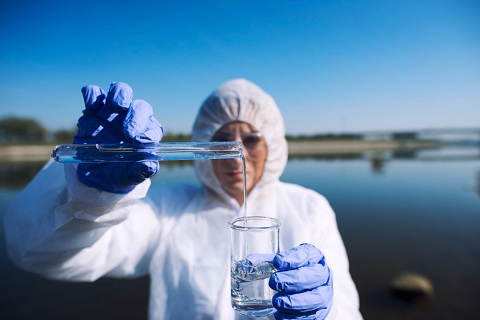Water is the essence of life, playing a crucial role in sustaining human health and well-being. In the modern world, ensuring the safety of our water supply has become paramount. This article delves into the significance of safe hydration and the indispensable role of water purifiers in achieving this goal.
The Need for Water Purification
Our water sources, once pure and pristine, are now susceptible to various contaminants. From industrial pollutants to microbial agents, the risks associated with consuming impure water are numerous. The need for water purification arises from the alarming increase in water contamination, threatening the health of individuals and communities alike.
Types of Water Contaminants
Water contaminants come in various forms, ranging from harmful microorganisms to chemical pollutants and heavy metals. Each poses a unique set of health risks, making it imperative to understand and address these issues comprehensively.
Microorganisms, such as bacteria and viruses, can lead to waterborne diseases. Chemical pollutants, including pesticides and industrial waste, may have long-term health implications. Heavy metals like lead and mercury can accumulate in the body, causing severe health disorders. Recognizing the specific risks associated with these contaminants is crucial in promoting safe hydration.
How Water Purifiers Work
Water purifiers employ different methods to eliminate contaminants and ensure the delivery of clean, safe water. Filtration processes, such as activated carbon and sediment filters, target impurities at the microscopic level. Reverse osmosis systems use a semi-permeable membrane to filter out pollutants, while UV purification eliminates harmful microorganisms. Understanding these processes provides insight into the effectiveness of various water purification methods.
Benefits of Using Water Purifiers
Using water purifiers offers a multitude of benefits that extend beyond the obvious improvement in taste and odor. These devices play a crucial role in enhancing the overall quality of the water we consume. Here are some key advantages of using water purifiers:
Removal of Harmful Contaminants:
Water purifiers are designed to eliminate various contaminants, including bacteria, viruses, chemicals, and heavy metals, ensuring that the water you drink is free from potential health hazards.
Improved Taste and Odor:
Filtration processes in water purifiers help in removing impurities that contribute to unpleasant tastes and odors, resulting in a more enjoyable and refreshing drinking experience.
Protection Against Waterborne Diseases:
By targeting and removing microorganisms like bacteria and viruses, water purifiers act as a safeguard against waterborne diseases, promoting better health and well-being.
Enhanced Overall Health:
Consuming purified water reduces the risk of ingesting harmful substances, leading to improved overall health. It contributes to better digestion, nutrient absorption, and the efficient functioning of bodily processes.
Environmental Sustainability:
Opting for a water purifier reduces reliance on single-use plastic bottles, contributing to environmental sustainability by minimizing plastic waste and lowering the carbon footprint associated with bottled water production and transportation.
Cost-Efficiency in the Long Run:
While the initial investment in a water purifier may seem significant, it proves cost-effective over time compared to regularly purchasing bottled water. It offers a more economical and sustainable solution for obtaining clean drinking water.
Convenience and Accessibility:
Having a water purifier at home provides a continuous and convenient supply of clean water. There’s no need to rely on external sources, and access to purified water is readily available whenever needed.
Preservation of Essential Minerals:
Some advanced water purifiers are designed to retain essential minerals during the purification process. This ensures that the water not only meets safety standards but also provides beneficial minerals necessary for health.
Reduction of Chlorine and Chemicals:
Water purifiers effectively reduce the concentration of chlorine and disinfection byproducts, minimizing exposure to potentially harmful chemicals commonly found in tap water.
Customization for Specific Needs:
Water purifiers come in various types, allowing users to choose based on specific water quality concerns, household size, and budget. This customization ensures that individual needs are met effectively.
Choosing the Right Water Purifier
Selecting the appropriate water purifier requires careful consideration of factors such as water quality, household size, and budget constraints. With a variety of options available, understanding the unique features of each type of water purifier aids in making an informed decision that aligns with individual needs.
Installation and Maintenance
Proper installation and regular maintenance are essential for the optimal functioning of water purifiers. This section provides practical tips for the installation process, routine maintenance, and troubleshooting common issues, ensuring a seamless experience for users.
Safe Hydration for Different Demographics
Different demographic groups, such as children, the elderly, and individuals with health conditions, have specific hydration needs. This section explores the benefits of safe hydration for each group and provides considerations for selecting water purifiers tailored to their requirements.
Environmental Impact of Water Purifiers
Comparing the environmental impact of bottled water to water purifiers emphasizes the importance of sustainable water purification options. By reducing plastic waste and energy consumption, water purifiers contribute to a healthier planet.
Innovation in Water Purification Technology
The field of water purification continues to evolve with innovative technologies. This section explores emerging trends and advancements, offering a glimpse into the future of water purification.
Addressing Common Misconceptions
Dispelling myths surrounding water purifiers is essential in fostering trust and understanding. By addressing common misconceptions, this section aims to provide clarity and build confidence in the efficacy of water purifiers.
Global Water Quality Challenges
Water quality challenges are not confined to specific regions. This section highlights global issues related to water quality and emphasizes the role of water purifiers in addressing these challenges on a broader scale.
Frequently Asked Questions
Water purifiers are designed to tackle a wide range of contaminants, but the effectiveness can vary based on the type of purifier and the specific contaminants present.
Some purifiers, like RO purifiers, can remove minerals from water, but this can be addressed by incorporating mineralization filters in the system.
Filter replacement frequency depends on the type of purifier and the quality of your water source. Generally, it’s recommended to follow the manufacturer’s guidelines.
Gravity-based purifiers operate without electricity, making them suitable for areas with unreliable power supply.
Regularly clean and service your purifier as recommended by the manufacturer to ensure its optimal performance and longevity.
Conclusion
The significance of safe hydration cannot be overstated, and water purifiers play a pivotal role in achieving this goal. By addressing water contamination issues, offering a variety of purification methods, and promoting environmental sustainability, water purifiers stand as indispensable guardians of our health and well-being.



